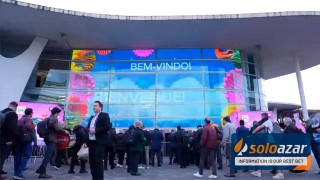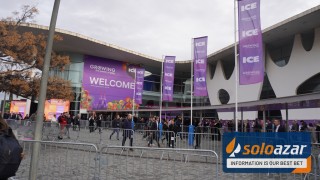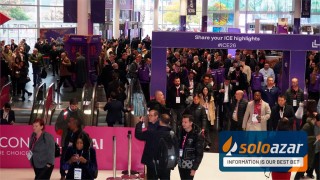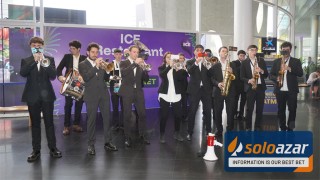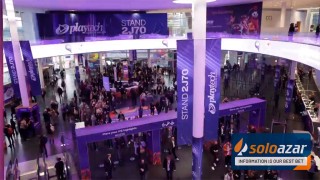9 Municipalities in Brazil create their own lotteries but for Treasury are illegal
Monday 25 de March 2024 / 12:00
2 minutos de lectura
(Brasilia).- At least nine municipalities have already created local lotteries since the Federal Supreme Court (STF) decided in 2020 that the exploitation of betting is not exclusive to the Union: Cuiabá (MT), Anápolis (GO), Embu das Artes (SP), Guarulhos (SP), São Vicente (SP), Porto Alegre (RS), Pelotas (RS), Caxias do Sul (RS) and Belo Horizonte (MG).
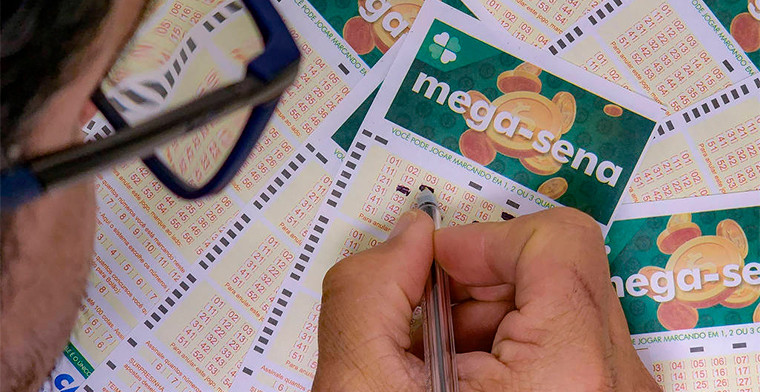
Remembering that the Brazilian state is organised in the form of a federation, where political power is distributed among the parts that make up the Federal State, the federative entities being made up of the Union, Member States, Municipalities and the Federal District.Despite this, for the Ministry of Finance, which regulates the issue, the legal framework in force today does not allow municipalities to have their own lotteries - only states and the Federal District, in addition to the Federal Government.
Mayors have defended entering the gaming market as an increase in revenue.
In Anápolis, the city council says that 80 per cent of the revenue from the municipal lottery will go to the Servants' Social Security Institute. In Guarulhos, when the law creating the lottery was published in 2021, the idea was to help the economy recover from the pandemic.
In Porto Alegre, the city council indicated that the money raised should be used mainly to reduce the cost of the public transport system. In Belo Horizonte, one of the objectives of the creation of the "BHLOT" would be to replenish the social assistance fund.
The lotteries are at different stages of implementation. Although all local legislatures have passed laws authorising the operation of the games, some city halls have yet to move forward with regulations.
In Porto Alegre, for example, the law authorising the Executive to operate lotteries was approved by the City Council in June 2022. But it wasn't until October 2023 that a call for tenders was issued for "studies to make the operation of lottery services viable".
Other city halls have already hired companies to operate the lottery, such as Cuiabá and São Vicente.
Last December, Cuiabá City Hall signed five-year contracts with two specialised companies to operate the Cuiabá Lottery, Lotec. Tec Lot Tecnologia Lotérica LTDA and Prohards Comércio, Desenvolvimento e Serviços em Tecnologia da Informação were selected.
Also in December last year, São Vicente City Hall contracted AMZ Loterias do Brasil LTDA, which will be able to operate, for 20 years, fixed-odds betting, specific prediction lottery, sports prediction lottery, numerical prediction lottery, instant lottery and passive lottery.
When contacted by Painel on Friday (22), the Ministry of Finance said that current legislation and STF case law do not support municipal laws that create lotteries. According to the ministry, only the Federal Government, the states and the Federal District can operate or grant lottery services.
"Specifically with regard to municipal lotteries, the STF has held that these federal entities do not have the power to legislate on lotteries, under penalty of violating the federal pact," says the ministry.
In addition, says the ministry, Law 13.756 of 2018, as amended by Law 14.790 of 2023, "delimited competence to the states and the Federal District, not reaching municipalities".
Ministry of Finance vs. Municipal Lotteries
The "Ministry of Finance, which regulates the issue, the legal framework in force today does not allow municipalities to have their own lotteries - only states and the Federal District, in addition to the Union" is wrong. The correct thing to say would be that the Ministry of Finance has the power to regulate the types of lottery authorised by federal legislation and operated by Caixa Econômica Federal by delegation from the Federal Government.
Caixa Econômica Federal is the Administrator of the Federal Lotteries, by delegation of the Federal Government conferred by Articles 2, 24 and 25 of Decree-Law 204 of 27 February 1967.
Another misconception contained in the report, highlighted by the Ministry of Finance, is that Law 13.756/2018, as amended by Law 14.790/2023, "delimited competence to the states and the Federal District, not reaching the municipalities". Although they are not mentioned in the aforementioned legal norms, this does not exclude or prohibit municipalities, as federal entities, from providing this service.
As there are divergent views on the subject, it is appropriate to discuss the variables regarding the creation of a public lottery service by municipalities.
In the Supreme Court's judgement on ADPF's 492 and 493 and ADI 4.986, Justice Alexandre de Moraes ruled in his vote that municipalities have the same powers because there is no express prohibition in the Federal Constitution.
"I believe that, since there is no express prohibition on states and municipalities, the Union could not - under the terms of article 19, III, of the Constitution, which enshrines one of the important federal prohibitions -, when exercising its private legislative competence, create distinctions or preferences between the Union and states, between the Union, states and municipalities or between different states," Moraes decided in his vote.
Article 19(III) of the Federal Constitution states that "The Union, the States, the Federal District and the Municipalities are prohibited from: (...) creating distinctions between Brazilians or preferences among themselves."
Reporting Justice Gilmar Mendes emphasised in his ruling the importance of the funds from lotteries in financing social security, which in Brazil is described as a set of public policies aimed at the well-being of citizens, made up of three main services: health, social assistance and social security.
"The implementation or resumption of the operation of these services by the sub-national federated entities will therefore constitute an important source of resources for overcoming contemporary financial contingencies, in addition to ultimately constituting an important reinforcement of social security resources (Art. 195, III, of the CF/88)," Mendes argues.
Categoría:Legislation
Tags: Sin tags
País: Brazil
Región: South America
Event
ICE Barcelona 2026
19 de January 2026
Merkur Group Shines in Barcelona with Triple ICE Triumph
(Espelkamp/Barcelona).- Merkur Group secures three prestigious international accolades for operational excellence, social commitment, and standout exhibition experience.
Friday 06 Feb 2026 / 12:00
Eduardo Aching: "ICE 2026 was an exceptional event for Konami and its casino partners"
(Barcelona, SoloAzar Exclusive).- Eduardo Aching, Vice President of iGaming & International Gaming Operations at Konami Gaming, reflects on the company’s standout participation at ICE 2026, the strong reception to Solstice 49C and Konami Online Interactive, and the strategic push toward emerging regulated markets and expanded global partnerships.
Friday 06 Feb 2026 / 12:00
Belatra Games Strengthens LatAm Expansion and Innovation Strategy After ICE Barcelona 2026
(Barcelona, SoloAzar Exclusive).- Kateryna Goi, Chief Marketing Officer at Belatra Games, shares her assessment of the company’s participation in ICE Barcelona 2026, the quality of industry engagement at the event, and the strategic priorities shaping Belatra’s growth in 2026, with a strong focus on Latin America and narrative-driven innovation.
Friday 06 Feb 2026 / 12:00
SUSCRIBIRSE
Para suscribirse a nuestro newsletter, complete sus datos
Reciba todo el contenido más reciente en su correo electrónico varias veces al mes.










